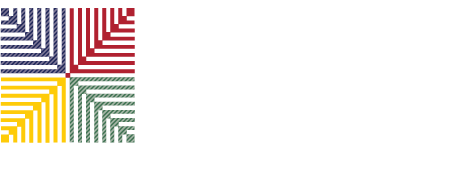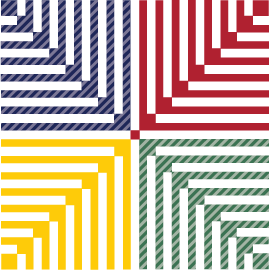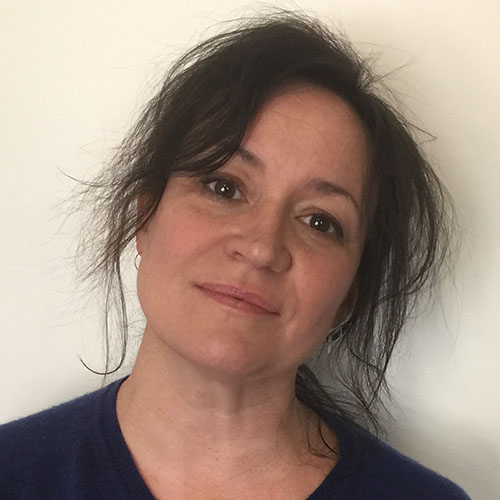In What Walaa Wants, a coming-of-age documentary, Canadian director Christy Garland follows the story of Walaa Tanji, a young, determined Palestinian woman who is training to become a police officer with the Palestinian Security Forces. The daughter of Latifa Abu Draa, who was jailed in Israeli prison for eight years for her involvement in a foiled suicide bombing mission, Walaa is determined to dictate and control the trajectory of her future.
The film is shot almost entirely between Nablus’ Balata Camp and the police training hub in Jericho. Garland filmed Walaa and her family for five years. The film opens shortly after Latifa was released from prison, when Walaa was 16, and follows Walaa as she shrinks and grows in the years leading up to her eventual police officer position. As the story unfolds, viewers are exposed to the harsh realities of life under occupation: In parallel to Walaa achieving her goal, her family suffers from the routine and intergenerational cycles of violence and imprisonment, to which she herself is eventually subjected.
What Walaa Wants premiered at the Berlin International Film Festival in early 2018 and has since been screened at festivals in Canada, Australia, Taiwan, France, Ireland and more. It won the Women in Film and TV Artistic Merit Award at the Vancouver International Film Festival, the Margaret Mead Filmmaker Award at the Margaret Mead Film Festival in New York City, and the Special Jury Prize at Hot Docs 2018. The film recently screened at BPFF.
BPFF: How did you meet Latifa and Walaa and create this bond with their family?
CG: I was in the West Bank for the first time in July of 2012. I’d been invited by a Danish team of video game designers (Play and Grow) who conduct workshops in conflict zones, with a focus on teaching young women technology. I met Walaa near the end of the trip and was immediately struck by her as a strong personality. She was about to turn 16 at the time and was obviously navigating a difficult time in her life. When I found out that her mother had recently been released from prison, I knew there was an interesting mother-daughter story there. Walaa initially declined, assuming I was only interested in her mother. It was only after I told her that I was interested in her life, that she introduced me to her mother Latifa. Both consented to let me film when they agreed there was an opportunity to show the world a unique Palestinian story. It was all made possible by an amazing translator/fixer/production coordinator I worked with the whole time named Ekram Zubaydi, who works with the Palestinian Center for Peace and Democracy. Walaa and Latifa trusted her, so that meant they trusted me.
During that trip in 2012, I had one day to shoot before I left. Walaa asked me to meet her at a salon, and I followed her with the camera as she walked home through the seemingly endless, labyrinthian passageways of Balata Camp in Nablus. You see this image in the first minutes of the film. For me, it represents her situation on many levels, which is why I repeat the image again when Walaa is heading to work in her uniform near the end of the film. At that point, Walaa hadn’t confessed her dream to be a police officer, I found that out a year later. I finished shooting the film in January 2018 and shot in the West Bank 10 times over that five-and-a-half-year period. Most of the shooting happened in Balata Camp, and the police training scenes happened in Jericho.
BPFF: The footage and emotion in this film feel so raw, as if there was never a camera rolling. What is the process like to prepare for a documentary that captures uncomfortable and deeply personal moments over and over?
CG: It all comes down to the level of trust that Walaa and her family gave me. Walaa is telling her story along with me, and I believe she and Latifa felt it was important for others to experience her story. But it wasn’t easy for her. Over the years, we had to keep talking about what we were doing—I had to respect the times when she was just fed up with how closely the camera followed her and wanted me to turn the camera off for a while. But I do think the experience was quite meaningful for her, in the end. It was amazing to see her in Berlin at the film’s premiere, walking up on stage with an audience of 450 people clapping for her—it altered the way she regarded herself and the value of her own life.
BPFF: For people who are not familiar with the situation in Palestine, what do you think they can take from this film?
CG: We don’t see enough stories about Palestinians, and rarer still are stories about Palestinian women. In any place that is not occupied, Walaa’s goal to be a police officer would not have been that complicated. My goal with this film was to make sure that the story I captured was so universal that everyone would empathize with Walaa, and root for her, but experience how incredibly complicated her life is by the occupation, and by the never-ending cycle of violence and retaliation that surrounds her in Balata Camp and the West Bank, which is gradually being consumed by the settlements that continue to exacerbate the situation there. I hope people who see this film will have more understanding and empathy for the plight of Palestinian people and a greater understanding of what it is like to live under occupation.
BPFF: Throughout the film we see Walaa grow and shrink and grow again. At times she is hot headed; at other times, we see her begin to level out. What did you learn from her and what was it like as a director working with her?
CG: Walaa is extremely dear to me and in so many ways I sympathize with her. She’s learned to look after herself in a high-pressure environment, and I learned that even at her most hot-headed, she is an extraordinary human being because she takes care of herself. Like all Palestinian youth, she has enormous potential and deserves a normal life, a safe life, and one with a future over which she has some control. I felt very lucky to be in a position to document her fight for those rights.
BPFF: By the end of this film, we see a mother who is worn down by the violence imposed by the occupation. And then there’s Walaa and her brother who, like their mother, become part of the Israeli prison system. What does this say about the generational cycles of prison and violence? By observing and working with her family so closely, what does that make you feel about future generations?
CG: I wish I could say hopeful, but the situation there is getting worse, no thanks to Trump, and as you point out, people are worn down. I think the film shows us that there is hope, however, when we look closely at Walaa’s story and how bravely she struggles to live a positive, fulfilling life despite the obstacles that stand in her way.
Regarding our story, I’m sad to share the news that Latifa has recently passed away, and she really didn’t have a very good life as we see in the film. Her father and her brother were killed after an altercation with the IDF at a checkpoint that also resulted in the young Israeli officer’s death. That moment defined the rest of Latifa’s life, and it led to the retaliative actions that put her in prison for eight years while her seven children were raised by family. And I’m certain the loved ones of that young Israeli police officer, who was probably only a teenager, harbor the same pain and resentment that Latifa did, which prevents them all from seeing the others as human beings.
A big reason that I made this film was to show Walaa struggling to avoid the same fate by having some measure of control over her life…through a job that affords her as much personal happiness and freedom as possible in her situation. It’s astonishing how normalized the prison experience is in Palestine, and that’s why it’s important that it is depicted in the film, although I wasn’t happy to see Walaa herself and her brother experience it. There are hundreds of women and children in Israeli prisons, and children grow up listening to prison stories the way we listen to our older brothers and sisters talk about trips to Europe, summer camp, or university. That makes me fearful for younger generations, and of course it’s tremendously sad to imagine the potential each Palestinian’s life would have if he or she grew up with the same freedom that I did in Canada, for instance.
But look how strong and cheeky Walaa is when she’s released: She stands up, brushes off her knees, and keeps going – that kind of incredible resilience does give me a lot of hope actually and I hope her story inspires others and offers something positive to our understanding of such a very complicated conflict.
—Amira Asad for BPFF


